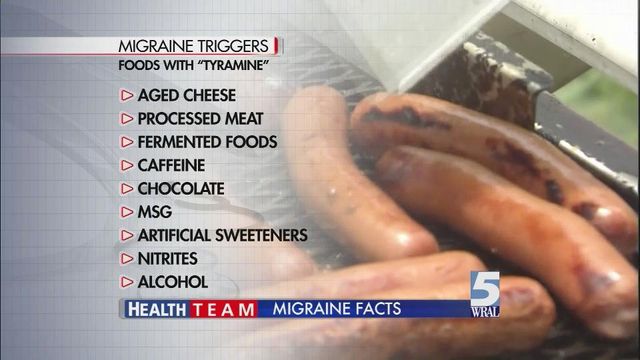Regular exercise, healthy diet can help prevent migraines
Doctors say there are certain migraine triggers but also ways to prevent and treat them.
Posted — UpdatedA simple headache is one thing, but a migraine is something entirely different.
Migraines can last a few hours, for days or even as long as a week.
Doctors say there are certain migraine triggers but also ways to prevent and treat them.
Some people are at greater risk: Three out of four people who get migraines are women, and four out of five people with migraines have a relative who gets them as well.
If one parent has migraines, the chance of getting them is 50 percent. If both parents get migraines, though, that chance increases to 75 percent.
Migraines tend to peak among people between the ages of 35 to 40 and then taper off as people age.
However, as women go through perimenopause their hormonal changes increase the risk of migraines.
There are some common migraine "triggers," doctors say.
Foods with the natural substance tyramine, such as aged cheese, processed meats and fermented foods like soy sauce and sauerkraut, might trigger migraines in many cases.
It may help to avoid caffeinated foods or drinks, chocolate, foods with MSG, artificial sweeteners, meats with nitrites and alcohol.
Other triggers might include strong smells, such as perfumes or detergents.
Bright light and florescent lamps can bring on a migraine, too, as well as a stress, fatigue and a lack of sufficient sleep.
Preventing migraines can involve regular exercise, a healthy diet and staying well hydrated with plenty of water.
Doctors can prescribe preventative medications if patients have two or more headaches per month. These medications include beta blockers like inderal or a calcium channel blocker like verapamil.
Keeping a headache diary can help pinpoint triggers and prevention.
• Credits
Copyright 2024 by Capitol Broadcasting Company. All rights reserved. This material may not be published, broadcast, rewritten or redistributed.





